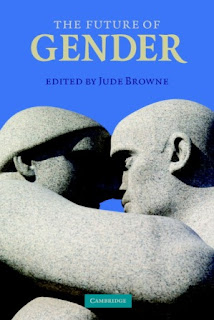Hernández Piñero, María Aránzazu
Eclipsados, Pamplona : 2009
* Sbc - Investigación 396:159.922.1 AMA
OPAC Millennium
“Amar la fluidez” es una imagen que me gusta mucho. La tomo de Luce Irigaray. Indica el sentido de la búsqueda que es este libro, y que no adelanto. Aunque, desde luego, el subtítulo ayuda: “teoría feminista y subjetividad lesbiana”. Podría decir que el nudo, o mejor, el hilo, en el que se me hacen muchos nudos, es la sexualidad. Cómo el feminismo ha pensado y piensa la sexualidad femenina y lesbiana.
Se trata de un libro que versa sobre teoría feminista y subjetividad lesbiana. Aborda cuestiones como el papel de las lesbianas en el movimiento feminista: ¿cuándo comenzó a estar en la agenda del feminismo la sexualidad disidente?, los conflictos emergentes dentro de los distintos feminismos y la necesidad de articular puntos en común para una política y lucha conjunta.



